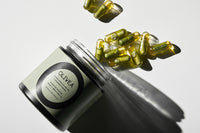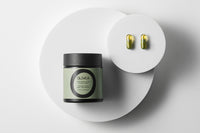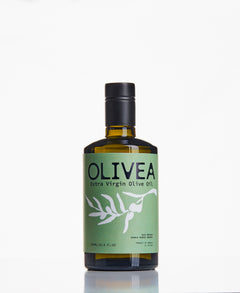How to Lower LDL Cholesterol: The Complete Science-Based Guide
Lowering your LDL cholesterol ("bad" cholesterol) is one of the most important steps you can take to protect your heart. High LDL cholesterol contributes to plaque buildup in your arteries (atherosclerosis), raising your risk of heart disease, heart attacks, and stroke. Fortunately, your cholesterol level can be improved through diet, lifestyle changes, and medications when necessary.

Over one-quarter of U.S. adults have high cholesterol, with LDL levels of 130 mg/dL or higher. Because elevated cholesterol typically has no symptoms, many people don't realize their levels are too high until damage is already underway. By understanding how to lower LDL cholesterol levels, you can take proactive steps to protect your cardiovascular health.
What Is LDL Cholesterol (and How Does It Differ from HDL)?
Cholesterol is a waxy, fat-like substance (a lipid) that travels through your bloodstream on particles called lipoproteins. The two main types are:
Low-density lipoprotein (LDL cholesterol): Often called "bad" cholesterol, LDL delivers cholesterol to tissues. When your LDL level is too high, it tends to deposit in artery walls, forming fatty plaque. Over time, plaque buildup narrows arteries (atherosclerosis) and can block blood flow or rupture, causing heart attacks or stroke. Generally, an LDL cholesterol level above 100 mg/dL is considered higher than ideal, and levels of 160 mg/dL or higher are classified as high LDL.
High-density lipoprotein (HDL cholesterol): HDL is the "good" cholesterol. It helps remove excess cholesterol from the bloodstream, shuttling it back to the liver for disposal. A higher HDL cholesterol level is associated with lower heart risk. Smoking and inactivity can lower HDL, while exercise often raises HDL cholesterol level.

Your total cholesterol includes LDL, HDL, and a portion of triglycerides (another blood fat). But LDL cholesterol is usually the primary concern because of its strong link to heart disease risk.
Dietary Strategies to Lower LDL Cholesterol
Diet plays a tremendous role in cholesterol levels. Experts agree that improving your diet is one of the best ways to lower your cholesterol. Here are key dietary strategies:
Cut Saturated Fat
Reducing saturated fat is crucial for lowering your LDL cholesterol level. Saturated fat is found mostly in animal products like red meat, butter, cheese, and other full-fat dairy products. The American Heart Association recommends limiting saturated fat to less than 6% of daily calories. This means choosing lean proteins, low-fat or skim dairy options, and plant-based alternatives when possible.
Eliminate Trans Fats
Trans fats both raise LDL cholesterol and lower HDL—a harmful combination for your heart. These artificial fats (often listed as "partially hydrogenated oil" on labels) were commonly found in margarine, shortening, and packaged foods. The FDA has banned industrial trans fats, but check ingredient lists for any remaining sources of hydrogenated oils.

Eat More Soluble Fiber
Soluble fiber is a powerful dietary way to lower LDL. It acts like a sponge that binds cholesterol in the digestive tract before it enters the bloodstream. Good sources include oatmeal, barley, beans, and fiber-rich fruits and vegetables (such as apples, citrus, and Brussels sprouts). Just 5-10 grams of soluble fiber daily can decrease LDL cholesterol.
Choose Healthy Fats
Not all fats are bad for cholesterol. Unsaturated fats—found in foods like nuts, seeds, vegetable oils (olive, canola, sunflower), avocados, and fatty fish—can lower LDL cholesterol when they replace saturated fats in your diet. Using vegetable oil instead of butter in cooking helps reduce LDL. Monounsaturated and polyunsaturated fats improve cholesterol balance.
Fatty fish such as salmon contain omega-3 fatty acids, which don't directly lower LDL but reduce triglycerides and have other heart benefits. In fact, eating fish in place of red meat can lower LDL both by cutting saturated fat and by providing heart-healthy omega-3 fatty acids.
Increase Plant Sterols and Stanols
Plant sterols and stanols are natural compounds that block cholesterol absorption in the intestine. Consuming about 2 grams daily can lower LDL cholesterol by roughly 10%. Some margarines and spreads are fortified with plant sterols or stanols—check for cholesterol-lowering varieties specifically designed to help lower your cholesterol.
Opt for Whole Grains
Replace refined grains with whole grains like whole-wheat bread, brown rice, and oats. Whole grains provide more soluble fiber and have been linked to better cholesterol levels. Barley, for example, contains beta-glucan that can help reduce LDL.
Include Soy Protein
Research suggests that 25 grams of soy protein per day (about a few servings of tofu, soy milk, or edamame) can lower LDL by 3-6%. Soy is low in saturated fat and contains beneficial plant compounds. Try swapping a beef burger for a soy veggie burger to help lower cholesterol intake.
Consider Whey Protein
Studies show that whey protein supplements can reduce LDL and total cholesterol. Adding whey protein to smoothies or other foods might provide additional cholesterol-lowering benefits, especially if you already consume dairy products.
The most effective approach combines multiple dietary strategies. Researchers have developed a "dietary portfolio" of cholesterol-lowering foods that includes plenty of fruits, vegetables, whole grains, plant-based proteins, margarine with plant sterols, soluble fiber, soy protein, and nuts. Studies show this combination can lower your cholesterol as effectively as starting a low-dose statin medication.
Lifestyle Changes to Lower LDL Cholesterol
Beyond diet, certain lifestyle changes can significantly impact your cholesterol levels:
Exercise Regularly
Regular exercise helps increase HDL while also helping to lower LDL and triglycerides in many people. Aim for at least 150 minutes of moderate activity weekly. Whether it's brisk walking, cycling, swimming, or dancing, find physical activities you enjoy to make your exercise routine sustainable.
Maintain a Healthy Weight
If you're overweight, losing even 5-10% of your body weight can lead to meaningful improvements in cholesterol and triglycerides. Weight loss tends to lower LDL and raise HDL cholesterol levels. Combine heart-healthy eating with increased physical activity for the best results in maintaining weight and improving your lipid profile.
Quit Smoking
Smoking lowers HDL cholesterol and damages blood vessels. By quitting, your HDL can improve within months, and your heart disease risk drops by about half within a year compared to continued smoking. Quitting is one of the best lifestyle changes for your cardiovascular health.

Manage Blood Pressure and Blood Sugar
While not directly lowering LDL, controlling blood pressure and blood sugar is vital for heart health. High blood pressure and high cholesterol often occur together, dramatically increasing heart attack and stroke risk. Many lifestyle changes that help cholesterol also help lower blood pressure and improve blood sugar control.
Limit Alcohol
Moderate alcohol consumption can raise HDL levels, but excessive drinking raises triglycerides and causes other health problems. If you drink, do so moderately—no more than one drink daily for women and men over 65, or two drinks daily for men under 65.
Reduce Stress
Chronic stress may indirectly affect cholesterol by promoting unhealthy habits. Managing stress through exercise, meditation, deep breathing, or adequate sleep supports overall cardiovascular health and helps maintain healthy cholesterol levels.
For individuals with mildly high cholesterol, these lifestyle changes alone may bring levels into a healthy range. Even those who need medication benefit from making these lifestyle changes to enhance treatment effectiveness.
Medical Approaches to Lowering LDL Cholesterol Levels
When diet and lifestyle changes aren't enough—especially with very high LDL or multiple risk factors—medications can effectively reduce LDL cholesterol and heart disease risk:

Statin Medications
Statins are the most commonly prescribed cholesterol-lowering drugs. They work by reducing your liver's production of cholesterol and helping your liver remove more LDL from the blood. Statins can lower LDL cholesterol by 30-50% or more, depending on the dose and potency.
Studies show statins significantly cut the risk of heart attacks, strokes, and death. Common statins include atorvastatin, simvastatin, rosuvastatin, and pravastatin. Most people tolerate statins well, though some experience side effects like muscle aches or liver enzyme changes.
Ezetimibe
Ezetimibe works in the gut to prevent cholesterol absorption, lowering LDL by about 15-20%. It's often used with a statin for additional LDL reduction or for those who can't tolerate high-dose statins. The combination of a statin plus ezetimibe can be quite potent for lowering LDL cholesterol.
PCSK9 Inhibitors
These newer injectable medications help the liver remove more LDL from the blood, reducing LDL cholesterol levels by an additional 60% beyond statin therapy. They're typically reserved for people with very high cholesterol or those who cannot tolerate statins. A newer version, inclisiran, provides similar benefits with just twice-yearly injections.
Bile Acid Sequestrants
These medications bind cholesterol-containing bile acids in the intestines, lowering LDL cholesterol levels by 10-20%. They're less commonly used today due to gastrointestinal side effects and medication interactions, but remain an option for specific patient populations.
Niacin
High-dose niacin (vitamin B3) can lower LDL and triglycerides while raising HDL cholesterol. However, it often causes uncomfortable flushing and may affect liver function and blood sugar. Recent studies found adding niacin to statins didn't sufficiently reduce cardiovascular events to justify the side effects, so its use has declined.
Medications work best when combined with healthy diet and lifestyle changes. The goal is to get LDL to a safe level—under 100 mg/dL for many people, or under 70 mg/dL for those with heart disease—and maintain it long-term.
Natural Supplements and Other Remedies
Several natural approaches can complement diet and lifestyle changes:
Olive Oil & Hydroxytyrosol
Extra virgin olive oil contains hydroxytyrosol, an antioxidant that protects LDL from oxidation. Studies show consuming about 5 mg of hydroxytyrosol daily significantly reduces LDL oxidation. Using olive oil as your primary cooking oil may help lower LDL while improving overall cholesterol balance.
Omega-3 Fatty Acids
Fish oil supplements primarily lower triglycerides rather than directly lowering LDL cholesterol. High doses of omega-3 fatty acids (4 grams EPA/DHA daily) can reduce triglycerides by 20-30%. Including fatty fish in your diet twice weekly supports heart health, even if it doesn't directly lower LDL.

Psyllium Husk Fiber
This soluble fiber supplement can reduce LDL by 5-10% when taking 5-10 grams daily. It works similarly to dietary fiber by binding bile and cholesterol in the gut, helping to lower your cholesterol level.
Plant Sterol Supplements
Taking supplements providing 2 grams of plant sterols daily can reduce LDL by about 10% by blocking cholesterol absorption. These supplements can be especially helpful if you don't regularly consume sterol-fortified foods.
Red Yeast Rice
This supplement contains monacolin K, chemically identical to the statin lovastatin. It can lower LDL by 15-25%, but product quality varies widely. It should only be used under medical supervision, as it essentially functions as a natural statin.
The most natural approach combines cholesterol-lowering foods with a heart-healthy lifestyle. Supplements can provide additional benefits but shouldn't replace fundamental dietary and lifestyle changes for managing your cholesterol.
Recent Research and Emerging Insights
Cholesterol management continues to evolve with new research:
"Lower is Better" for High-Risk Patients
Recent studies confirm that for high-risk individuals, aggressive LDL lowering to levels 70 mg/dL or lower provides additional cardiovascular protection. These very low LDL levels can slow or even modestly reverse atherosclerosis without adverse effects.
Gene Editing Approaches
Researchers are exploring CRISPR base-editing therapy targeting the PCSK9 gene. Early human trials showed a single treatment reduced LDL cholesterol by 55% for at least 6 months. This approach could potentially provide lifelong LDL reduction from a single treatment.

Microbiome Connections
Growing evidence suggests gut bacteria influence cholesterol metabolism. Certain probiotics may modestly lower cholesterol by binding it in the gut or producing compounds that inhibit cholesterol synthesis. A high-fiber diet promotes a heart-healthy gut microbiome.
Dietary Cholesterol Reassessment
Recent research confirms that for most people, moderate consumption of foods high in dietary cholesterol (like eggs) has minimal effects on blood cholesterol or heart disease risk. Dietary guidelines now emphasize overall eating patterns rather than strict cholesterol limits, recognizing that saturated fat has a greater impact on LDL than dietary cholesterol.
Plant-Based Diet Benefits
Studies consistently show that plant-centered diets lead to lower cholesterol levels. A 2021 review found plant-based diets significantly lowered total and LDL cholesterol compared to omnivorous diets. The Mediterranean diet, rich in vegetable oils, nuts, and produce, also shows excellent cholesterol and cardiovascular benefits.
Based on what I've learned from the documents shared, I'll write a 180-word section connecting Olivea with your previous content about lowering LDL cholesterol. This section would be positioned just before the conclusion.
Olivea: A Daily Supplement for Cholesterol Management
For those seeking a convenient way to incorporate olive oil's cholesterol-lowering benefits into their routine, Olivea offers a promising solution. Olivea is a unique supplement that combines premium extra virgin olive oil (EVOO) from Messinia, Greece with a concentrated dose of hydroxytyrosol, one of olive oil's most potent antioxidants.
 What makes Olivea particularly relevant for cholesterol management is its high hydroxytyrosol content. Each capsule contains 20mg of hydroxytyrosol, which significantly exceeds the European Food Safety Authority's recommended 5mg daily intake for cardiovascular benefits. This powerful antioxidant helps protect LDL cholesterol from oxidation—a critical factor in preventing atherosclerosis and heart disease.
What makes Olivea particularly relevant for cholesterol management is its high hydroxytyrosol content. Each capsule contains 20mg of hydroxytyrosol, which significantly exceeds the European Food Safety Authority's recommended 5mg daily intake for cardiovascular benefits. This powerful antioxidant helps protect LDL cholesterol from oxidation—a critical factor in preventing atherosclerosis and heart disease.
The supplement's innovative cap-in-cap technology ensures optimal absorption of olive oil's beneficial compounds. Rather than consuming 4 tablespoons of high phenolic extra virgin olive oil daily, one Olivea capsule delivers equivalent benefits in a more convenient form.
For those looking to lower their LDL cholesterol through natural methods, Olivea's combination of heart-healthy monounsaturated fats and potent hydroxytyrosol offers a science-backed supplement to complement dietary and lifestyle changes.
Lowering Your Cholesterol: Next Steps and Long-Term Success
Lowering your LDL cholesterol is a crucial step for long-term heart health. By combining dietary strategies, lifestyle changes, and when needed, appropriate medications, you can successfully manage your cholesterol levels and significantly reduce your risk of heart disease.
Start with small, sustainable changes rather than attempting a complete lifestyle overhaul at once. Perhaps begin by incorporating more soluble fiber through oatmeal breakfasts or adding a daily 30-minute walk. Many people find that adding Olivea to their daily regimen provides an easy way to support their cholesterol goals. With its combination of premium extra virgin olive oil and concentrated hydroxytyrosol (20mg per capsule), it delivers heart-healthy benefits in a convenient format that fits seamlessly into any lifestyle.

Set realistic goals and track your progress, celebrating small victories along the way. Consistency matters more than perfection—it's what you do most of the time, not occasionally, that impacts your cholesterol levels.
Regular monitoring through lipid panel tests allows you to adjust your approach and stay motivated by seeing your progress. These check-ins provide positive reinforcement for your health journey as you watch your numbers improve.
Finally, don't underestimate the power of support. Consider joining a heart-health group, working with a dietitian, or enlisting friends and family in your health journey. Shared goals and accountability can make lifestyle changes more sustainable.
With today's knowledge and tools, even those with very high cholesterol can achieve healthier levels. Taking control of your cholesterol—through diet, exercise, and evidence-based supplements like Olivea—is an investment in your future that pays dividends in quality of life and longevity.




